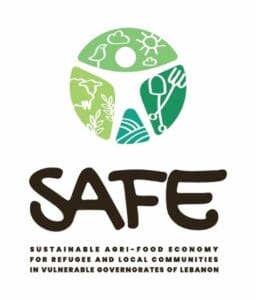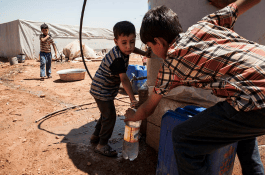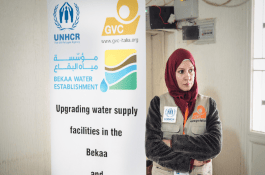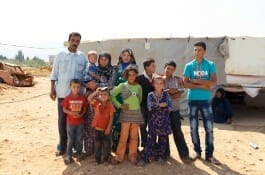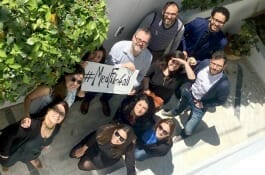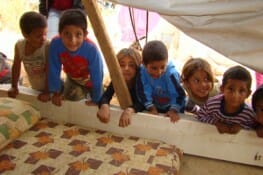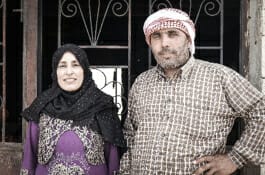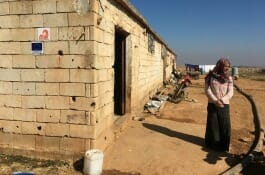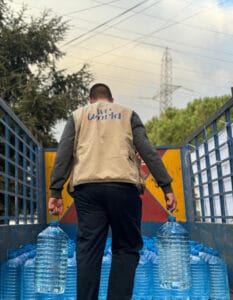
The context Entering in its sixth year of multi-layered crisis, Lebanon is knocked down by the overall collapse of the…
Discover moreWeWorld is in Lebanon since 2006, supporting vulnerable populations in the Baalbek-Hermel and Akkar governorates through water governance, education, food security, livelihood, and local development interventions.
Since 2019, Lebanon has been experiencing a severe, multifaceted crisis spanning institutional, social, and economic dimensions. The country's economic status fell to lower-middle income in 2022 for the first time in 25 years, reflecting deepening vulnerabilities and structural dysfunctions (IFCR, 2023). By October 2023, basic food costs surged, making necessities unaffordable for many (WFP). At the same time, unemployment more than doubled, hitting 29.6%, particularly affecting women and youth. High inflation and limited income sources have deepened poverty, forcing families to adopt negative coping strategies such as reducing food intake and cutting health and education expenses. Currently, acute food insecurity affects more than 1 million people, in a country where the population is a little under 6 million.
As Lebanon enters its fourth year of crisis, an estimated 80% of the Lebanese population lives in poverty, with 36% residing below the extreme poverty line (DG NEAR, 2023; Human Rights Watch 2023). Structural weaknesses in productivity, market performance, and systemic inequalities, including labour exploitation and discrimination, further complicate the Lebanese economic and labour market, requiring targeted intervention.
The compounded crises in Lebanon, worsened by events such as the Covid-19 Pandemic, the Beirut Blast, and the spillovers of the Syrian Crisis and the Gaza conflict, exacerbates vulnerabilities and deepens inequalities. Since October 8th, when armed groups in Lebanon intervened in support of Gaza, tensions have steadily risen along the southern border, with frequent exchanges of fire between armed groups and the Israel Defence Force. The escalation extended beyond the southern borderlines at the beginning of 2024, with Israeli shelling targeting various localities in the Bekaa Valley. Israeli strikes, particularly those in the South of Lebanon, have directly affected civilian populations and many families have been forced to flee their homes. In April 2024, there were 93,040 IDPs who are seeking refuge across Lebanon (OCHA).
In addition to displacement, approximately 20,000 children are facing disruptions to their school year, and at least 6 primary health centres have closed. The deteriorating security situation has also heightened distress among affected populations, fostering fears of violence, family separation, and barriers to accessing essential services such as education and livelihood opportunities (OCHA, 2024). Therefore, the regional instability, compounded by national fragilities, further disrupts supply chains and livelihoods opportunities, exacerbating displacement and poverty across Lebanon (WFP, 2023).
We have been working in Lebanon since 2006, with the goal to boost the population’s resilience by empowering communities to evaluate and utilize their own skills and resources for sustainable growth and development tailored to their specific needs.
Our interventions in Lebanon engage beneficiaries of all nationalities, with an inclusive approach to the most vulnerable groups, such as refugees, women, youth, and Persons with Special Needs.
The Humanitarian, Development and Peacebuilding Nexus approach is applied throughout our programs to ensure consistency and effectiveness in implementation, and to address the transversal needs of the beneficiaries. We operate with a focus on localization, creating partnerships with local public and private stakeholders. This approach aims to empower local actors, ensuring alignment with the communities’ priorities and promoting the sustainability of the actions.
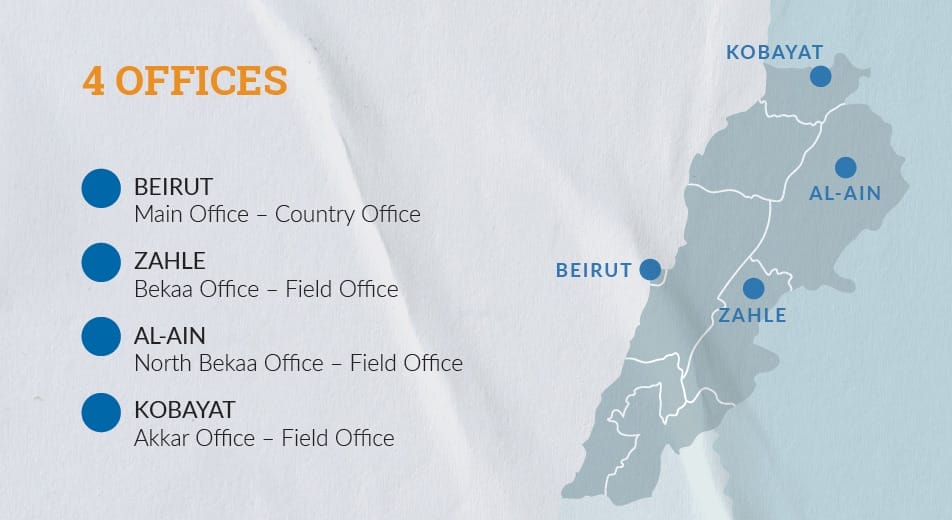
The mission counts more than 50 employees, divided into four offices: Beirut, Zahle, Ain and Kobayat. Our work in the country articulates around four main areas of intervention:
We focus on effective and sustainable water supply and governance via a three-tiered approach:
Our programs in the Bekaa Valley aim to enhance the entire public water distribution system by efficiently managing water resources and reducing maintenance costs within the sector.
We are committed to ensuring inclusive access to education, with particular attention to vulnerable individuals, such as girls, refugees, and Children with Special Needs. We are contributing to the rehabilitation and solarization of schools attended by both Lebanese and Syrian children. The interventions focus on adapting facilities to ensure accessibility for Children with Special Needs, and enhancing inclusion efforts through the engagement of families, by offering them tailored support and by raising awareness among their communities about their challenges and needs. Moreover, we collaborate with the Lebanese Ministry of Education and Higher Education.
We have contributed to food security for vulnerable Lebanese and Syrian refugees, including People with Disabilities, through food parcels and Vouchers distribution and livelihood projects. By offering vocational training and implementing Cash for Work projects, we have created livelihood opportunities, supporting individuals to start small businesses. These efforts have not only ensured food security, but also promoted a more sustainable and stable economic environment.
We are committed to long-term local development programs in Lebanon, focusing on enhancing social cohesion throughout local communities by generating income and creating decent job opportunities along the agri-food value chain. Following the Humanitarian, Development and Peace Nexus, in Lebanon we are implementing initiatives to revitalize the local economy in the Northeast Bekaa and Akkar regions. These initiatives promote income opportunities by increasing communities’ resilience to external shocks, diversifying the local economy, increasing the regional competitiveness, and strengthening local public and private capacities to compete in both national and international markets. We are intervening, together with its partners, by designing activities structured around three main pillars:
Through these projects, not only we tackle the main barriers limiting productivity and profitability in the agri-food sectors, but also, it strengthens the local institutional actors’ capacities to plan and promote regional economic development.
The context Entering in its sixth year of multi-layered crisis, Lebanon is knocked down by the overall collapse of the…
Discover moreThe context In its five years of multi-layered crisis, Lebanon is knocked down by the overall collapse of the economic…
Discover moreThe secure provision of quality water is a problem for most of the Middle Eastern countries. Water shortages, obsolete infrastructure…
Discover moreIn the Bekaa Valley, the scarcity of water resources and the increase in demand from the Lebanese communities and Syrian…
Discover moreThe ongoing Syrian crisis and the presence of a high number of refugees on the Lebanese territory, especially in the…
Discover moreSince the beginning of 2015, GVC started collaborating with LOST in support Syrian crisis trough specific programs. The synergy of…
Discover moreAmong the target Countries there are many differences and different degrees between them in terms of how much and how…
Discover moreRecognizing the scarce resources and increasing water needs of the Lebanese communities and Syrian refugees , alongside the need for…
Discover moreAlmost 20% of the 1,5 million Syrian refugees in Lebanon live in Informal Tented Settlements (ITS) in the Bekaa Valley.…
Discover moreThe project’s aim is to improve the living conditions of 800 Syrian families (about 4500 people) forced by Lebanese military…
Discover moreIn the Lebanese context, due to a progressive arrival of many Syrian refugees, the pre-existing economic issues escalated and the…
Discover moreIn Lebanon, the demographic shock due to the Syrian displacement in combination with decreased of the economic activities have created…
Discover more